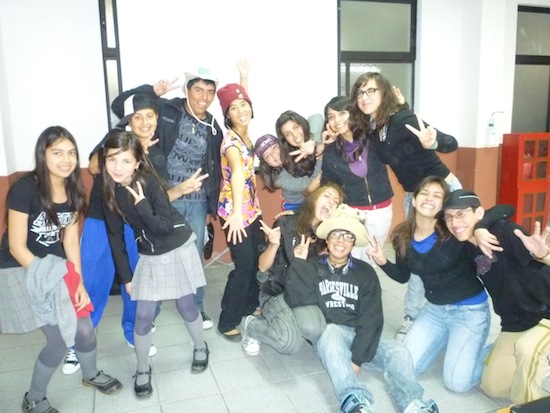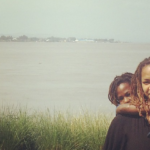The Truth About Teaching and Living in Chile

I had wanted to go study, work, or volunteer abroad since college but never was able to. I immediately started working an 8am to 5pm job out of college. I turn 30 next year and therefore felt a certain urgency to do something different in hopes of gaining more understanding of what I want to accomplish with my life while giving back to my community with what I have learned.
In November 2009, I applied to volunteer in Chile to help teach school-aged children conversational English and to live with a Chilean host family. But weeks before our departure, Chile was shaken by an 8.8 magnitude earthquake. With news of hundreds of deaths and disappearances as well as structural damage all over Chile and with sizeable aftershocks, I stayed behind to lessen my parents’ anxieties and participated in the volunteer program later in the year.
My initial interest in visiting Chile came from making friends with an occupational therapist from Chile who volunteered at my workplace a couple of years ago. While practicing English with her and inviting her to do various activities around Los Angeles, I learned more about the Chilean culture and became intrigued by it. In addition, I hoped to improve my Spanish language skills so that I would be able to better serve the Spanish speaking population in my work as an occupational therapist.
The Truth About Teaching and Living in Chile.
I lived and taught in Villa Alemana, a suburb in the Valparaiso Region. My host family turned out to be quite different from what I was used to as I came from a small family of three while my host family consisted of my host parents, brother, sister, five dogs, a variety of birds, and one cat. They lived in close proximity to some members of the huge extended family that I had grown to adore. In a cabin behind our house resided my uncle, aunt, and three cousins. I frequently visited them when I wanted to relax and converse as they were more patient with my broken Spanish.
My host grandparents lived in another house on the same lot. I enjoyed watching my tata (grandfather) tend to the garden while my abuelita (grandmother) peeled the fruits to help my aunt make marmalade or Kuchen. During my stay with my host family, I participated in several large celebrations, which often included 40-50 family members dancing, singing, and playing some dangerous musical chairs until 6am.
I learned much about being patient while teaching and living in Chile. There is a certain level of acceptance with the way things are, which is not common in the United States. In the United States, there tends to be an urgency to do things quickly and correctly. What is done in an eight hour shift in the United States may take Chileans 10 or 12 hours due to a typical 2-4pm lunch break, lateness to open businesses on time, taking time out of their work day to help each other, taking public transportation which may or may not arrive promptly, etc. School days and meals with families tend to be longer. Don’t expect anyone to be at the bars and clubs until 12am. Then people stay out way past 4am when the clubs close to get a bite to eat and sit in the “micro” (mini-buses) for up to 20 minutes, while the driver waits for them to fill up before dropping people off at the break of dawn. It’s not better or worse than what I’m used to–just different. I like how it is more “tranquilo” (relaxing), but at the same time, I feel that my days are sometimes much longer and that I have accomplished less.
However, I know that I made a huge impact at the school that I volunteered at. Most of my students were happy to come to class and I would hear them use slang that I taught them such as screaming “Awesome!” across the patio with two thumbs up or singing some songs in English during recess. I enjoyed planning for my English Club which was an optional after-school activity. My students felt free to express themselves by learning and singing the lyrics to The Rembrandts’ “I’ll Be There For You,” sliding across the classroom like Michael Jackson in “Thriller,” using creative adjectives to play Mad Libs, and writing good and bad fortunes in the origami Fortune Tellers that we made in class. Many of my 11th graders were motivated to continue to email their new pen pals from California after having exchanged post cards with them.
Although I have picked up more Chilean slang than drastically improving my Spanish, and I have had to endure and carefully explain some cultural misunderstandings, I have gained a better understanding of my capabilities and feel that I have given something to my Chilean school and family that none of us will forget through this intercultural exchange. I have learned to be more accepting of cultural differences and how to share my ideas in hopes that they will not be taken offensively.
While I did not participate in the program immediately after the earthquake in February, I still saw the structural damages on churches and homes, as well as businesses that were completely collapsed. I also watched the daily news account with my family about the 33 miners who were trapped for more than 2 months. I have found that although Chileans may sometimes worry too much about safety or getting a cold (it’s not surprising to find three pharmacies on the same block), I have learned that they make up a country that is full of pride and resilience.








